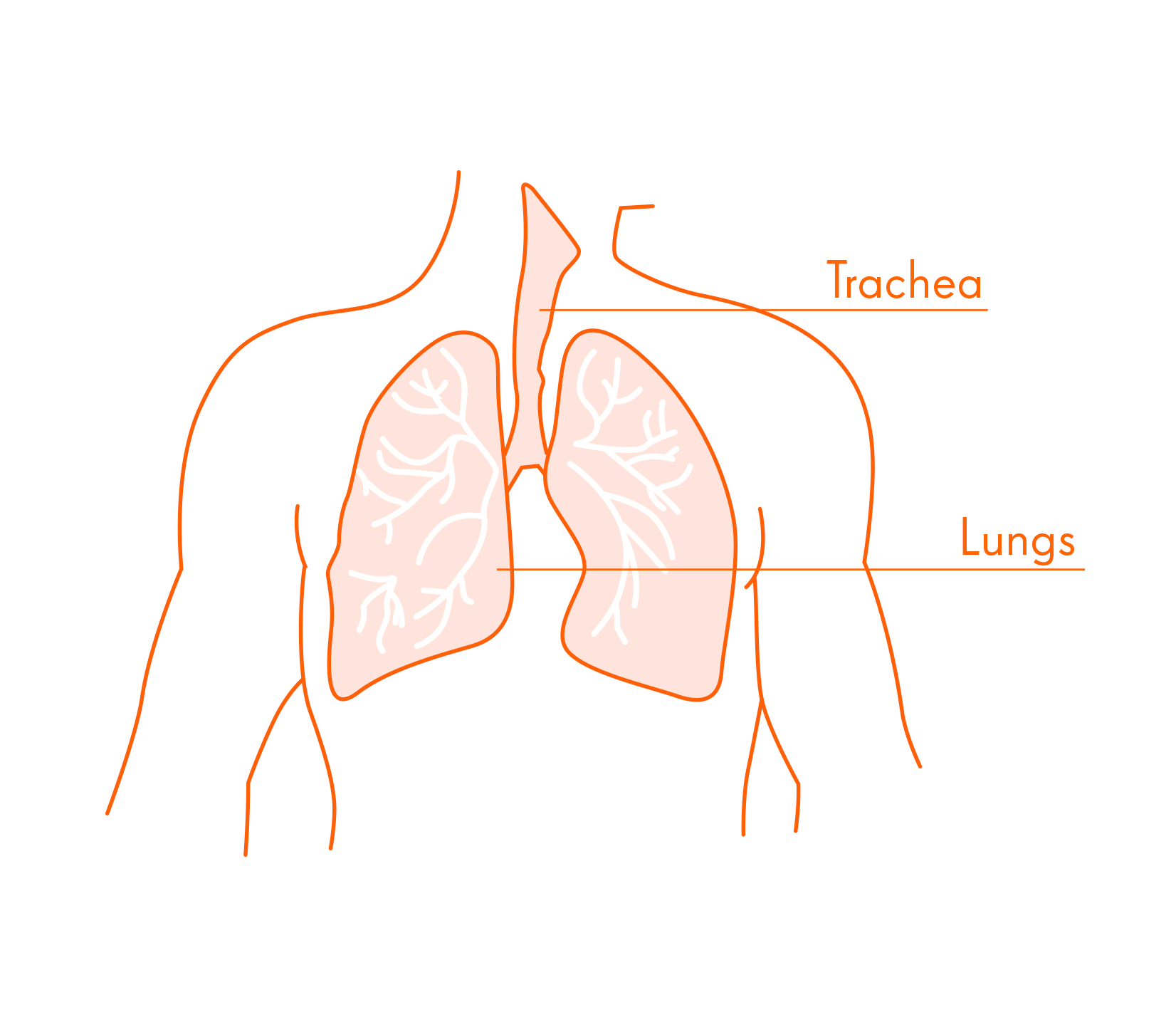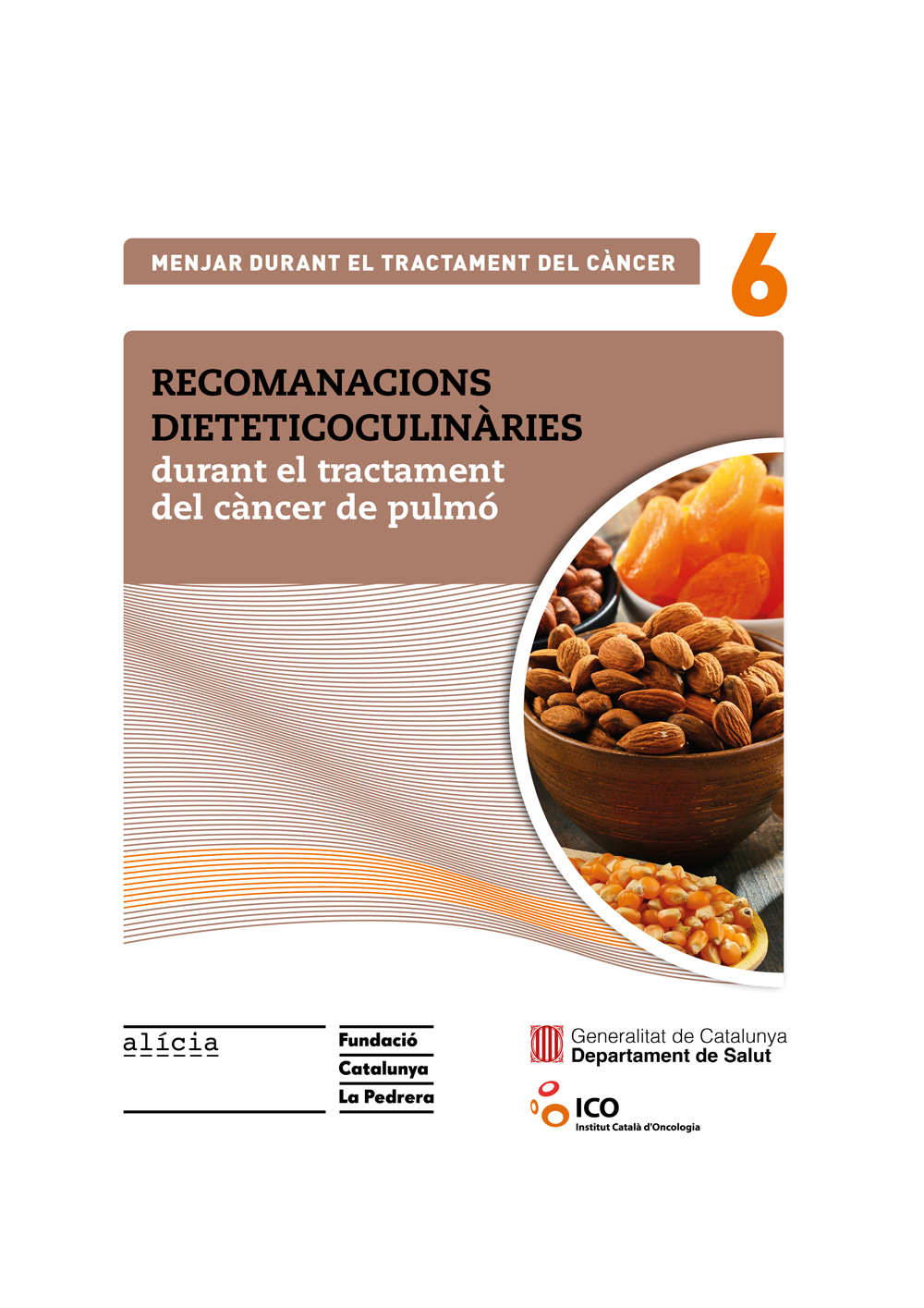|
Lung cancer encompasses all tumors that affect the cells that line the airways and lung tissues. There are several types of lung cancer, which are classified based on the location and type of lung tissue cell it affects. The treatment for this type of cancer will depend on many factors, such as the size and exact location of the tumor, the spread or the general condition of the patient. Therefore, the side effects of the treatments can vary and affect in different degrees and intensity. The tumor itself or the surgery can cause a limitation in the respiratory capacity of the lung and, as a result, tiredness when eating. In addition, the lung is close to the esophagus (an organ involved in the transport of food), which can also be damaged. Because of all this, there may be difficulty in feeding from the start of treatment or during it, and this may compromise the patient’s nutritional status. |
 |
Food priorities during lung cancer treatment will be to ensure an adequate nutritional status, which helps to decrease side effects and complications. To this end, apart from following the ” General recommendations on nutrition during cancer treatment “ , in lung cancer it is necessary to reinforce and consider:
- Distribute food in different intakes throughout the day. Make five complete meals and incorporate all the food groups. If tiredness appears when eating, it is also recommended to increase the number of meals to seven or eight, even dividing the contents of lunch or dinner into two meals. A full day’s worth of food can be divided into several smaller, high-nutrition-dense meals.
- Adapt the texture of food and the viscosity of liquids. When discomfort or pain appears when swallowing, provision must be made for modifying the texture of food and/or liquids to prevent a decrease in intake and make swallowing safe. The texture of the food will have to be adapted according to the needs, and simple modifications or even grinding the preparations can be enough.
- Check if there is any food-drug interaction. Possible interactions with plants and herbs, such as St. John’s wort, have been described in this type of cancer. with foods such as grapefruit and grapefruit juice, and also with nutrients from certain foods and supplements, such as folic acid and vitamin B12. These interactions may or may not occur depending on the prescribed treatment, so it is necessary to always consult the specialist in each specific case.
- Adapt the diet according to the side effects and symptoms that may appear based on the following dietary and culinary recommendations for each of these.
